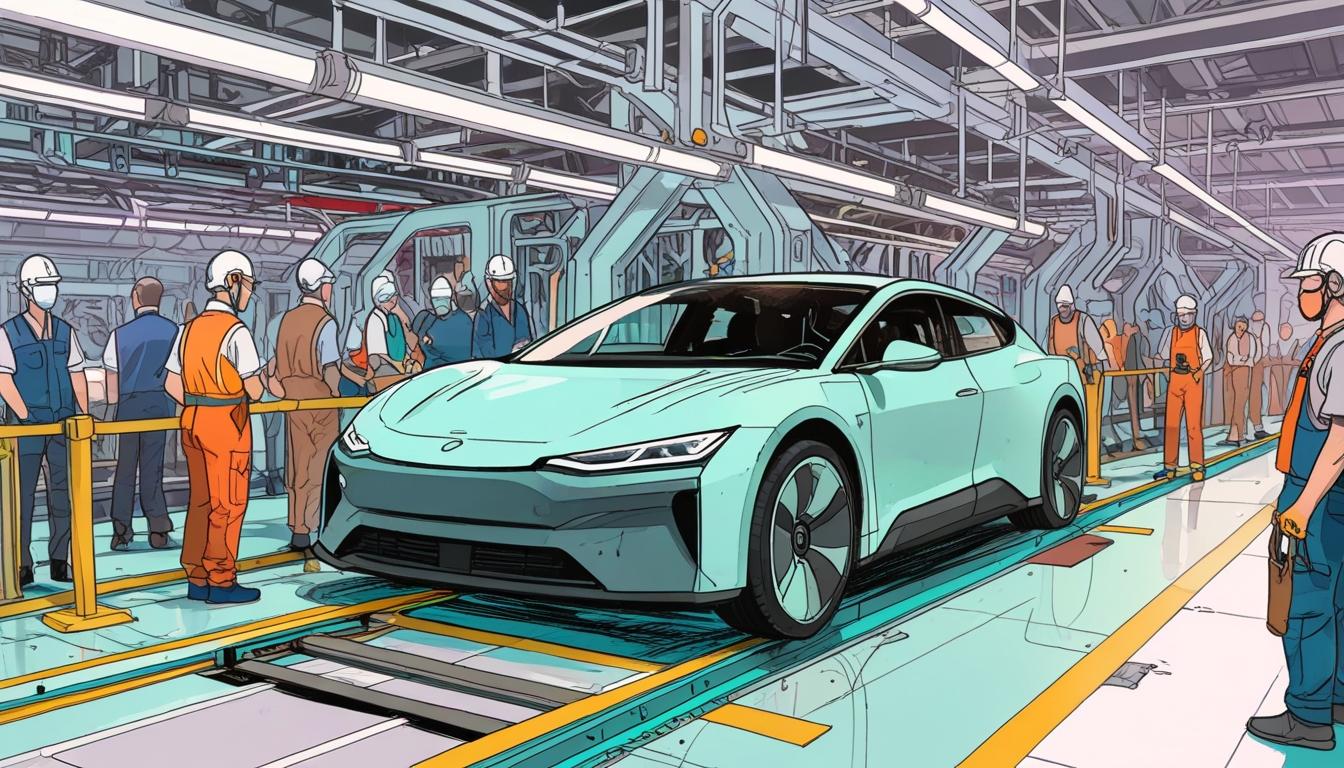The UK government has announced a relaxation of regulations for car manufacturers ahead of the impending 2030 ban on new petrol and diesel vehicles. This decision, made public on Sunday by Transport Secretary Heidi Alexander, aims to safeguard jobs in the automotive industry amidst an uncertain economic environment exacerbated by recently imposed tariffs on car exports to the United States.
As part of the measures, the government is committed to the 2030 deadline for phasing out petrol and diesel vehicles but will ease the transition regulations, allowing car manufacturers more flexibility during this period. The objective is to support the automotive sector as it prepares for a significant shift in production and market demands.
The ban, originally set by the previous government, was reinstated after a brief extension to 2035 announced by ex-Prime Minister Rishi Sunak. The government has framed this latest intervention as a necessary step to assist UK car manufacturers facing challenges due to President Donald Trump's recently enacted 25% import levy on cars imported to the US, which is a vital market for the British automotive industry.
In its announcement, the government stated that close collaboration with UK car manufacturers is essential to strengthen the commitment to phasing out petrol and diesel vehicles while implementing practical reforms to help the industry meet its ambitions.
Alexander further noted that support for the car industry will be closely monitored as the full impact of these new tariffs becomes clearer. Despite the urgent need for companies to pivot towards electric vehicles, leaders within the car industry have expressed concerns about the speed of this transition. They cite consumer hesitancy to adopt electric vehicles owing to high purchase prices and insufficient charging infrastructure.
The measures allow for the following changes:
- Relaxation of mandates imposed on car manufacturers during their transition to all-electric production, alleviating the risk of fines.
- Smaller UK-based firms, including Aston Martin and McLaren, will be permitted to produce petrol cars beyond the 2030 deadline.
- Some hybrid models will remain marketable until 2035.
Prime Minister Sir Keir Starmer has voiced support for these initiatives, suggesting they will stimulate economic growth and enhance the ability of domestic firms to compete in global markets. Starmer stated that the measures would ensure home-grown manufacturers can export UK-made vehicles worldwide, thereby benefiting workers financially.
However, opposition figures, including Shadow Business Secretary Andrew Griffith, have labelled the measures as "half baked." Griffith echoed Conservative leader Kemi Badenoch’s previous assertions that achieving net zero by 2050 is unfeasible. Meanwhile, Liberal Democrat transport spokesperson has called for enhanced incentives for consumers to purchase electric vehicles, asserting that the recently announced changes might be inadequate to shield the sector from the adverse effects of the tariffs instituted by Trump.
In a related development, Coventry-based manufacturer Jaguar Land Rover revealed it will "pause" all shipments to the US in April as the company navigates the new trading conditions brought about by the tariffs. Additionally, a separate 10% tariff on imports from the UK commenced recently, affecting the automotive sector among others. The US remains the second-largest export market for the UK's car industry, following the European Union.
Source: Noah Wire Services
